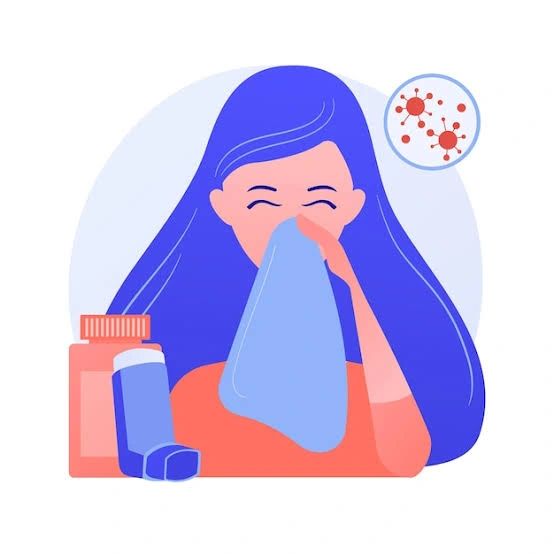
You take a tablet. It works fast. Sneezing fades. Eyes stop itching. You feel clearer. But the next morning, symptoms creep back. Antihistamines work quickly, but not forever. Turkish pharmacists explain this often. Relief is temporary. Especially with environmental triggers. Daily use becomes routine, not a cure.
Some brands make you sleepy, others don’t affect you at all
You try one type—sleep for hours. Another leaves you wide awake. Drowsiness varies. Older antihistamines, like diphenhydramine, often cause fatigue. Newer ones, like loratadine, usually don’t. In Türkiye, doctors now recommend non-sedating options for daily use. Especially during allergy seasons that stretch for months.
You take them every spring, but now symptoms show up in autumn too
Pollen isn’t the only trigger. Molds rise in damp weather. Dust stays year-round. Antihistamines treat symptoms—not sources. Turkish allergists adjust doses by season. Sometimes doubling it briefly. Sometimes switching brands. Because one allergy rarely stays alone. It evolves. New patterns form silently.
Your nose clears, but your skin stays irritated
The sneezing stops. But hives stay. Your arms itch. The tablet helps, but not fully. That’s dosage again. Skin reactions often need higher amounts. Or second-generation drugs. Turkish dermatology clinics often use combinations. Antihistamines plus creams. Especially when urticaria doesn’t respond after three days.
You develop tolerance, and your usual pill loses its strength
It worked last year. Now it feels weaker. Your body adjusts. Tolerance is common. Especially with long-term use. Turkish specialists rotate medications every few months. To avoid plateauing. Some even pause use between seasons. To reset the response. No one pill works forever.
You thought antihistamines were for colds, not for food reactions
You ate shrimp. Rash followed. A friend gave you cetirizine. It helped. Temporarily. Antihistamines reduce histamine, not prevent anaphylaxis. Turkish ER doctors warn patients often. For food allergies, epinephrine comes first. Antihistamines support recovery. But don’t replace emergency tools.
They help the symptoms but don’t stop the actual inflammation
You breathe easier. But your lungs still feel heavy. This isn’t asthma treatment. It’s surface-level control. Antihistamines block receptors. They don’t fix inflammation. Turkish pulmonologists stress this in allergy-induced asthma. They add steroids or leukotriene blockers. Because breathing deserves more than temporary ease.
You’ve taken them daily for months and started noticing dry mouth
You wake up parched. Tongue sticks. Eyes feel tired. That’s anticholinergic effect. Common in older formulations. Turkish ENT clinics note this in elderly patients. Especially those combining allergy and blood pressure meds. Hydration helps. But sometimes, switching is smarter than coping.
Your child seems drowsy in class after a morning dose
You gave a half tablet. Still, she’s sleepy. Focus drifts. Teachers notice. Turkish pediatricians suggest splitting doses. Or trying a syrup formulation. The timing matters. Giving at night may help. Because kids react differently. Their liver processes slower. Their day gets affected more.
You stopped using them, and symptoms flared worse than before
You felt fine. So you quit. Now it’s worse. Rebound reactions are real. Your body adjusts to suppression. Turkish allergists taper usage in long-term patients. Especially with nasal antihistamines. Cold turkey rarely works. Gradual weaning prevents rebound chaos.
They work fast, but can’t stop all allergic pathways
Your swelling stopped. But redness stayed. That’s because histamine is only one chemical. Bradykinin, prostaglandins, cytokines—they all play roles. Antihistamines block one receptor. Turkish immunology centers use layered approaches. Especially in chronic cases. One tablet can’t silence every response.
You combine them with decongestants, but your heart races
That combo clears your sinuses. But your pulse jumps. Hands shake. You feel anxious. That’s pseudoephedrine. A powerful decongestant. Common in combination pills. Turkish cardiologists caution people with hypertension. Antihistamines alone are safer. Especially for sensitive systems.
You feel better with branded versions than generics
Same molecule. Different feel. It’s not psychological. Formulations vary. Binders, coatings, release speed. Turkish pharmacies often offer multiple options. Patients find one works better. That doesn’t mean the others are fake. Just different absorption. Tiny changes affect experience.
You use eye drops, not pills, but still call it antihistamine use
Antihistamines aren’t only oral. Drops exist. Nasal sprays too. Skin gels. Turkish allergy clinics tailor form to need. Eye redness needs local treatment. Not systemic. Pills spread the effect. Drops target it. Knowing the form matters as much as knowing the drug.
You keep them in your bag, but don’t know what they’re treating
You pop one when itchy. Or sneezy. But never knew what triggered it. Turkish allergists test before prescribing. They trace root causes. Antihistamines are for response—not prevention. Knowing your allergen makes use smarter. Blind usage delays real solutions.
